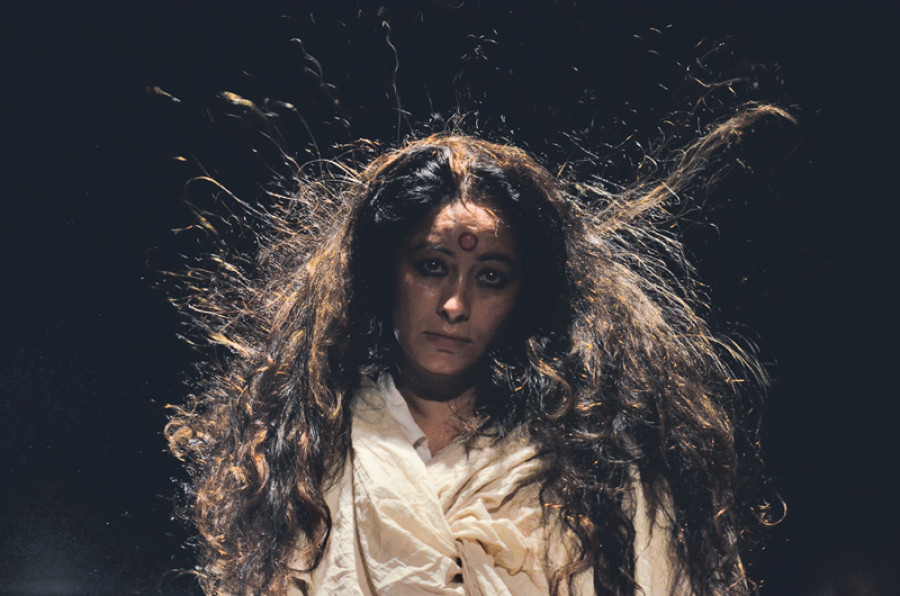Entertainment
Where are the witches?
Boksi ko Ghar works as a play not because it brings to us a new story. It works because it draws our eyes to the regularity with which witch-hunts still happen in this part of the world
Kurchi Dasgupta
For about 45 minutes actress Sarita Giri held the stage by herself at Mandala Theatre every evening between August 12 and 27. She did so while delivering to us Director Sulakchhyan Bharati’s poignant script that explores the process of the making of a ‘witch’ or ‘boksi’ by society.
“The story I’m telling is not something exceptional. Under-aged marriage and women being labelled as witches happens every day. But it has become normal to us. So even if it is in the newspaper, we read it, we turn the page and we don’t think about it anymore. I didn’t want to turn the page. I wanted to look deeply into what under-aged marriage does to girls. What are their stories? ... And why do we blame women as witches? In my opinion it is because our society is so entrenched with patriarchy, that it also influences our imagination and thought-processes. But I believe in the power of theatre to stimulate new ways of thinking, imagining and behaving. Through the play I ask the audience: where are the witches?” has been eloquently explained by Bharati elsewhere.
The play starts with a dreamy school girl, no older than ten, performed with lively candour by Giri. The bane of child marriage and its horrific effect on a young girl’s body and mind explodes on stage next, with Giri shining in the role of the much older, macho groom who takes her by force. The nightmare begins and her life slowly unravels through an unhappy marriage where she is a regular victim of marital
rape, subsequent widowhood and finally, her ravishment by her own father-in-law that pushes her across the border of sanity. The dexterity with which Giri alternately slips into the many roles—the devastated young girl and then a grown woman, then her two ravishers, and the older ‘witch’ who also happens to be holding the narrative together as a ‘sutradhar’, to name a few— leaves us in little doubt of Giri’s exemplary performative skills.
Boksi ko Ghar works as a play not because it brings to us a new story. It works because it draws our eyes to the regularity with which such incidents still happen in this part of the world. It picks out how society shapes us so that even the people we most trust, our own families, work hand in glove with the patriarchal system that perpetuates such exploitation. It also draws our attention to the many ways in which women themselves work tirelessly to perpetuate norms that subjugate them. Instead of offering her strength and a voice to rebel, the girl’s mother and then her mother-in-law both act as accomplices to a system that dehumanises and exploits a woman’s body for labour and sex. And when the young woman took recourse to silence as her only weapon against society’s endless exploitations, she was declared ‘mad’ and of course, a ‘witch’ soon after. Bharati has flawlessly constructed a pattern that has been in place for thousands of years and that regularly victimises half of our society, thanks to the silent support we relentlessly give the system. The ‘boksi’ must die of course, beaten to death as is the ‘norm’. The play ends with Giri walking onto the stage from the audience space, signifying the director’s message that each and every one of us in society is complicit in such incidents while running the risk of being hunted down ourselves.
Director Bharati has brought us a powerful play through an equally powerful performer. The lights by Narendra Baral were extraordinary. They often led the narrative and gave it flesh, offering support to Giri’s many characters as a living, breathing character itself. The stage design was minimalistic but innovative. Looking forward to more such powerful productions from Bharati and Giri!




 11.12°C Kathmandu
11.12°C Kathmandu










